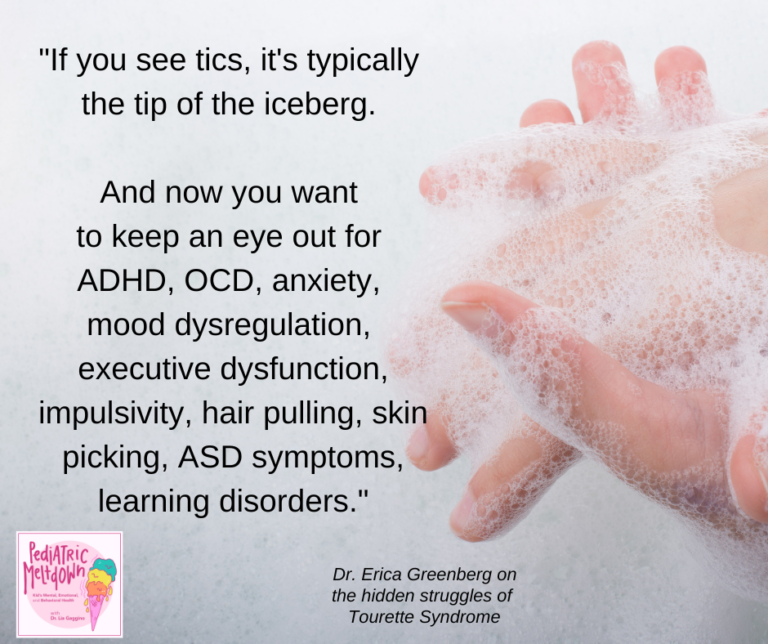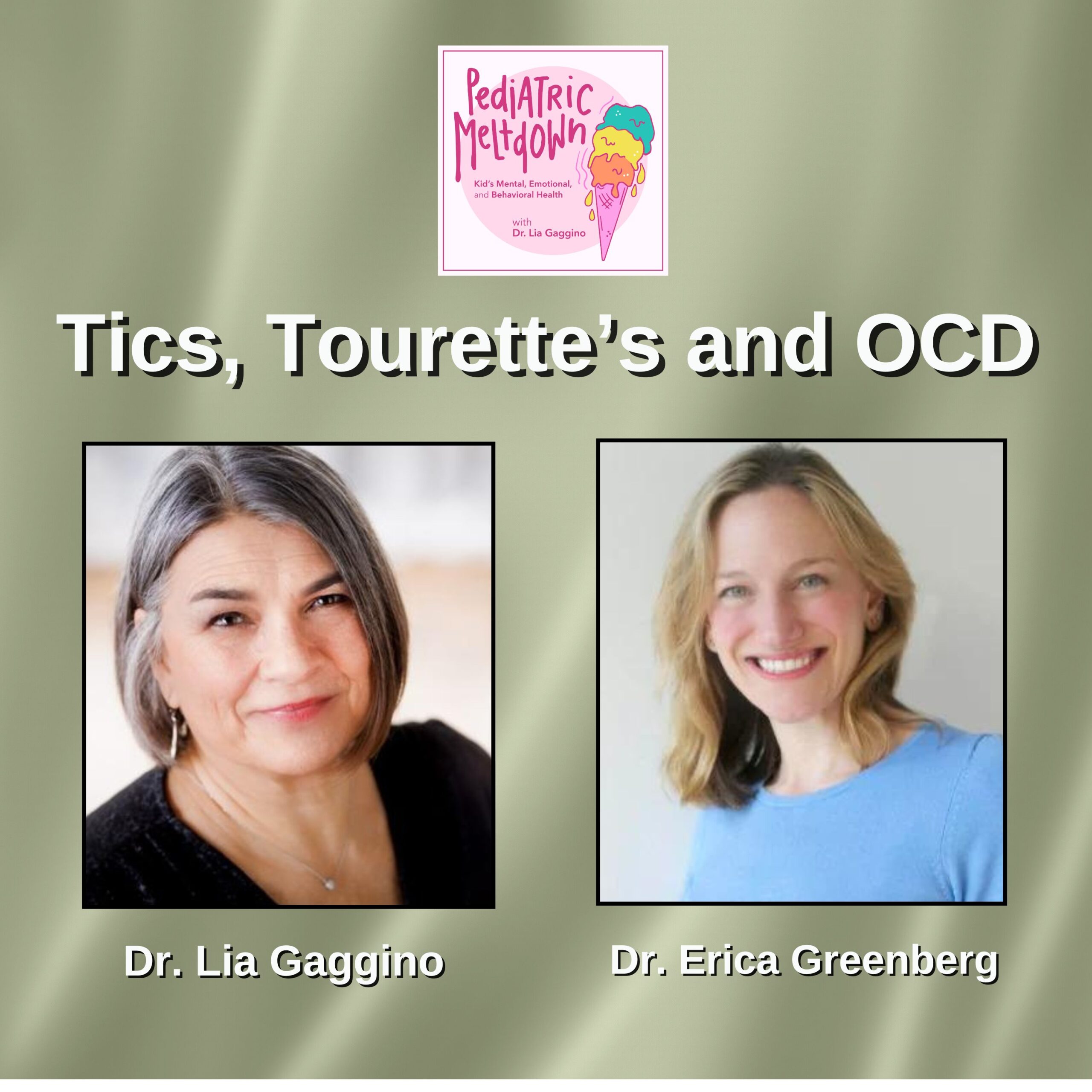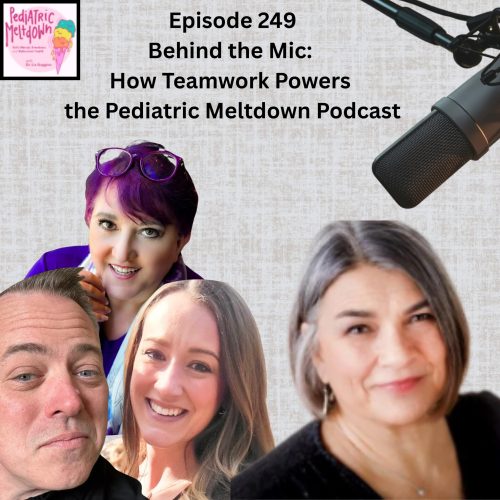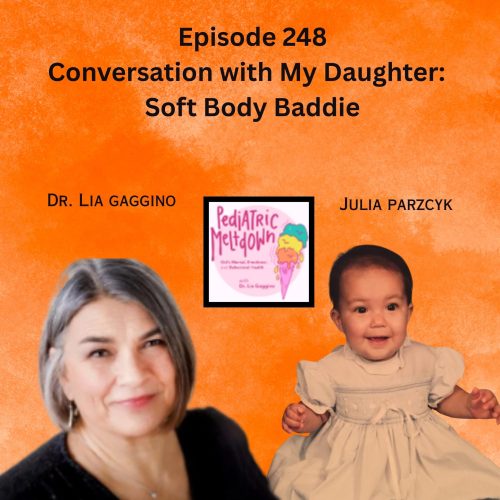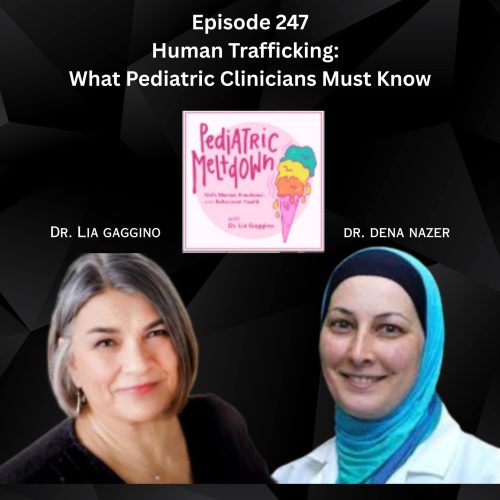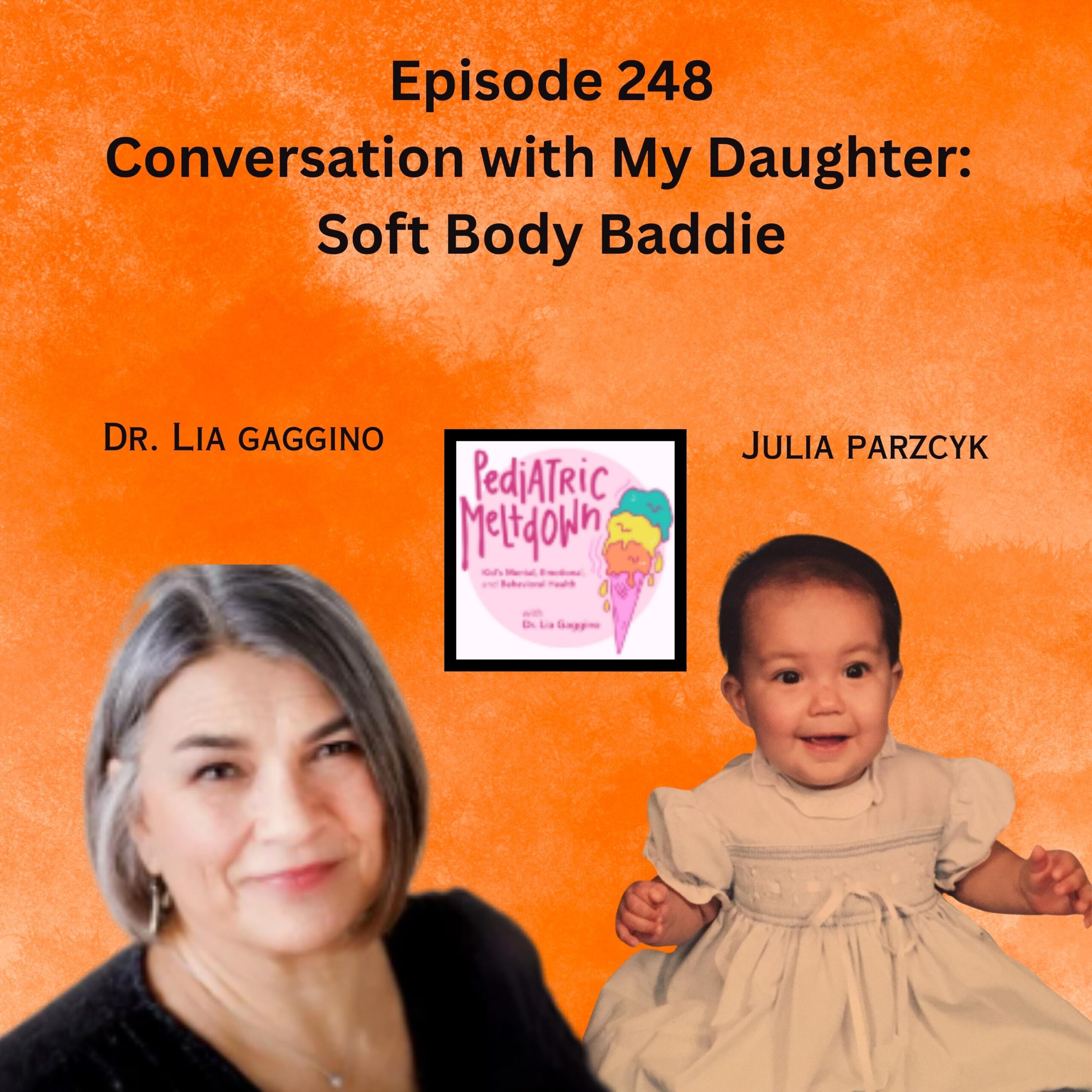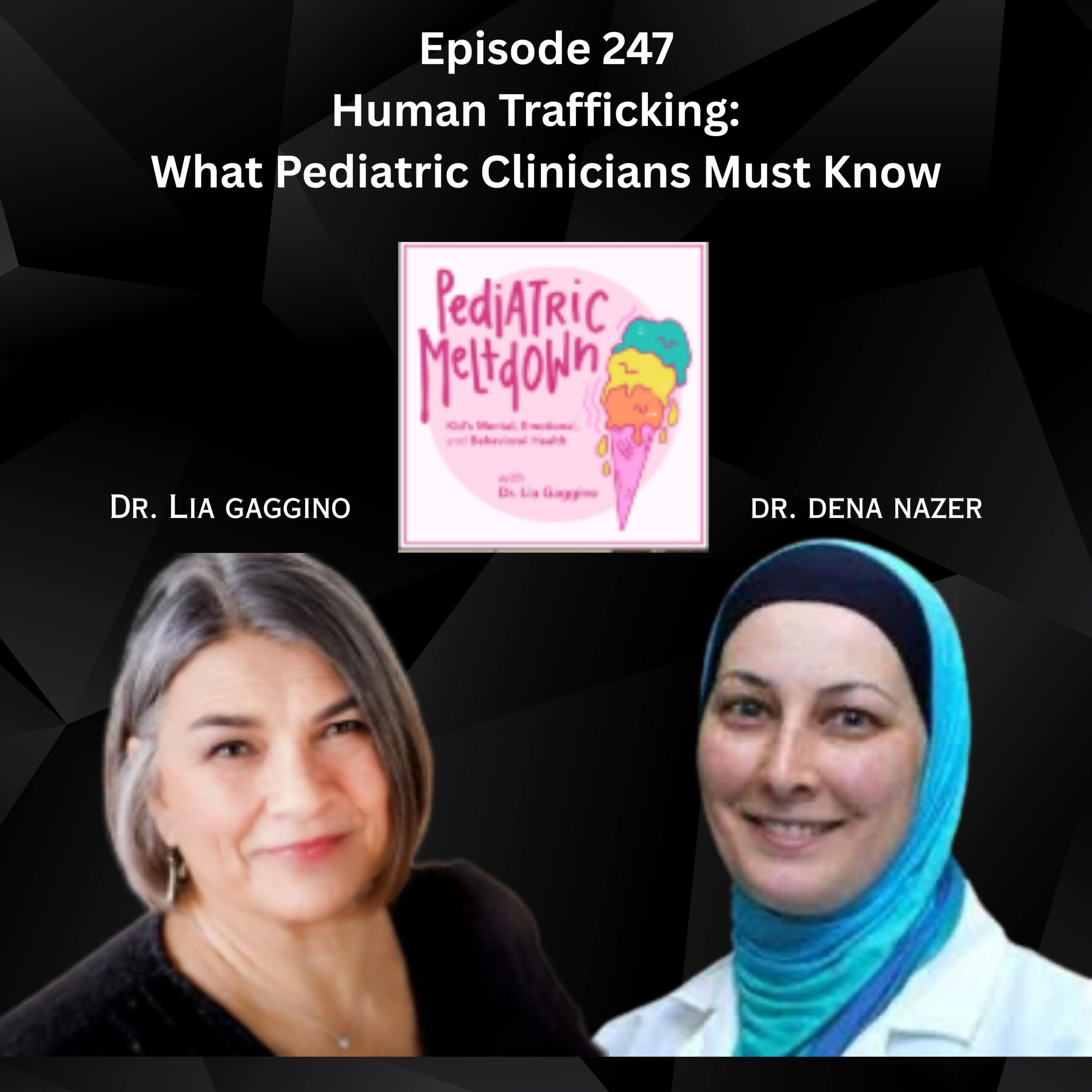Tics, Tourette’s and OCD
How do mental compulsions, such as intrusive sexual thoughts and reassurance-seeking behaviors, manifest in children with OCD?
What are some common co-occurring conditions with OCD in children, and how do they complicate diagnosis and treatment?
These questions are answered in this week’s episode of Pediatric Meltdown, where Lia sits down with child psychiatry expert Dr. Erica Greenberg to unravel the complexities of obsessive-compulsive disorder (OCD) in children.
Dr. Greenberg shares her journey into child psychiatry and sheds light on the diagnostic criteria for OCD, the common and individual themes that kids with this condition struggle with, and the impact OCD has on their lives. Erica explains the common categories like contamination and intrusive thoughts, and dispels myths regarding the treatment and prognosis of pediatric OCD.
By discussing various treatment strategies, from exposure response prevention therapy to medication options, this episode underscores the importance of comprehensive care. For parents and caregivers, recognizing the early signs and seeking appropriate treatment can make all the difference in a child’s developmental journey. Curious about an unconventional strategy that’s making waves in OCD treatment? This episode is the ultimate guide!
[03:22 -18:14] OCD Symptoms in Children: Key Diagnostic Criteria and Common Presentations
- To diagnose OCD, a child must have obsessions and/or compulsions, which are often both present.
- Obsessions are unwanted, repetitive, intrusive ideas, thoughts, images, or urges that cause significant distress.
- Compulsions are behaviors, either mental or physical, performed to get rid of the distress caused by obsessions.
- Examples of mental compulsions include body checking and repetitive counting to alleviate intrusive thoughts.
[18:15 – 28:13] Impact of OCD on Daily Life and Family Dynamics
- OCD can consume significant time daily, impacting children’s social and developmental trajectories.
- Children may miss social cues or avoid activities due to obsessions, leading to social withdrawal and alienation.
- Constant reassurance seeking from peers can alienate children, exacerbating their fears of social rejection.
- OCD affects families, often leading to strained relationships and the need for family involvement in therapy.
[28:14 – 37:32] Medication Treatment for Pediatric OCD: Key Insights
- SSRIs are the main medication used to treat OCD in children, with common choices including fluoxetine, sertraline, and escitalopram.
- Studies show that most of the beneficial effects of SSRIs can be observed within the first 2 to 4 weeks of treatment.
- Higher doses of SSRIs may be necessary for some children, but it’s important to monitor for any side effects, especially activation symptoms in younger kids.
- The combination of fluvoxamine and clomipramine may be beneficial, though fluvoxamine is not inherently superior to other SSRIs for OCD treatment.
[37:33 – 55:37] The Relationship Between Tourette Syndrome and OCD in Children
- Tourette syndrome involves at least two motor tics and one vocal tic for a duration of at least a year, which can overlap significantly with OCD symptoms.
- Tics are suggestible and can be simple (e.g., shoulder shrug) or complex (e.g., more deliberate movements or sounds), making them sometimes hard to distinguish from OCD compulsions.
- Up to 85% of individuals with Tourette syndrome have a co-occurring condition, with OCD being a common comorbidity.
- The presence of tics often signals the need to monitor for other conditions such as ADHD, anxiety, mood dysregulation, and sensory hypersensitivity.
[55:38 – 01:02:21] Closing segment Takeaways
Links to resources mentioned on the show
Tourette Association of America: https://tourette.org
AACAP Resources Center: https://www.aacap.org/AACAP/Families_and_Youth/Resource_Centers/Obsessive_Compulsive_Disorder_Resource_Center/Home.aspx
Other episodes you may like:
https://pediatricmeltdown.com/episodes
- Understanding Challenging Kids: The Behavior Code
133 Tantrums, Difficult Behaviors, “Red Alerts”: Using the “Smart Brain” for Problem Solving
125 Tic Disorders: TikTok Tics
Building Better Workflows Podcast
Key quotes for Twitter:
“The takeaway shouldn’t be, like, the trauma leads, the trauma causes the OCD symptoms.”…. Dr. Erica Greenberg on the relationship between trauma and OCD
“You don’t wanna push just for the sake of pushing to get to a high dose because OCD needs high doses. You wanna see something and then try to get to the lowest effective dose.”…. Dr. Erica Greenberg on balancing medication for OCD
**Transcript of Episode Available upon request**
THANK YOU FOR YOUR SUPPORT!
Pediatric Meltdown was listed as a Top 20 Pediatric Podcast on FeedSpot.
If you’d like to connect with me, you can Tap the “What Are Your Thoughts” button at the top of the notes or you can find me on LinkedIn, Facebook, Instagram, and Twitter, or email me at gagginol@gmail.com. To learn more about me visit https://www.pediatricmeltdown.com/ or reach out, DM me on IG, FB or LI and if you’d like to chat set up a discovery call to talk about your needs and challenges: https://calendly.com/gagginol/discovery-call
